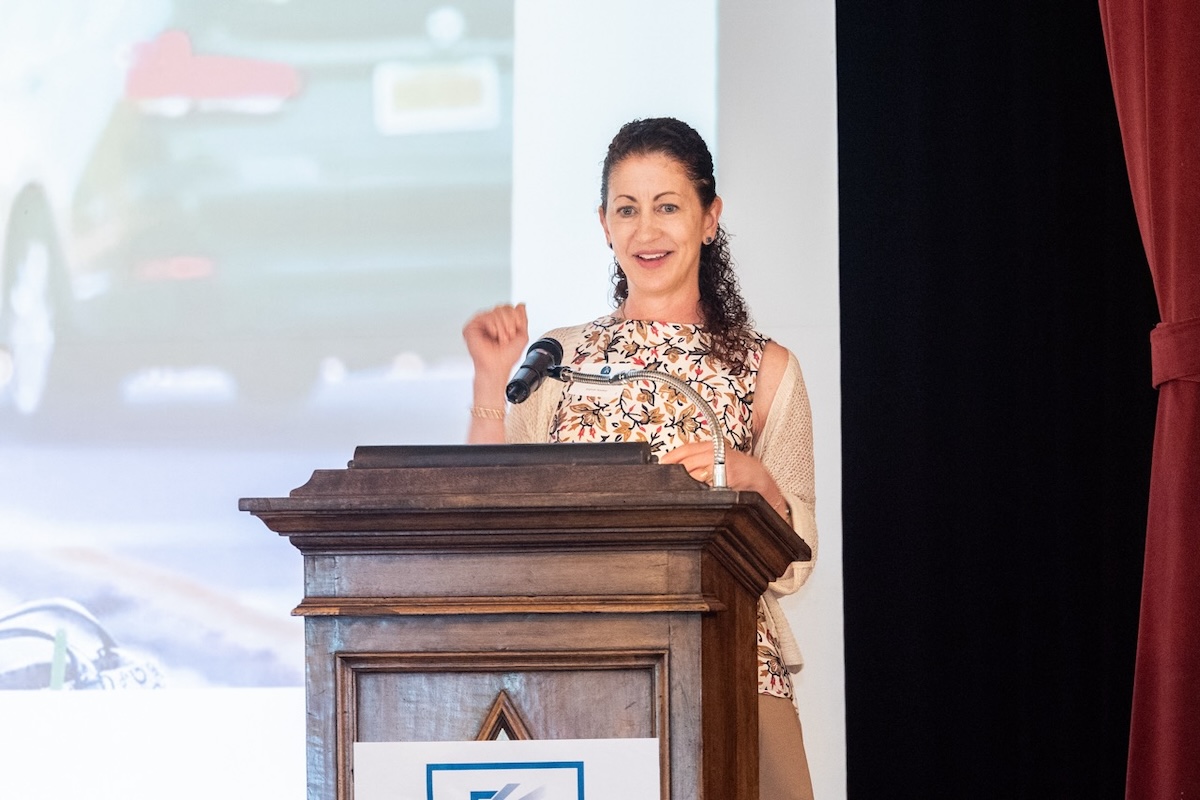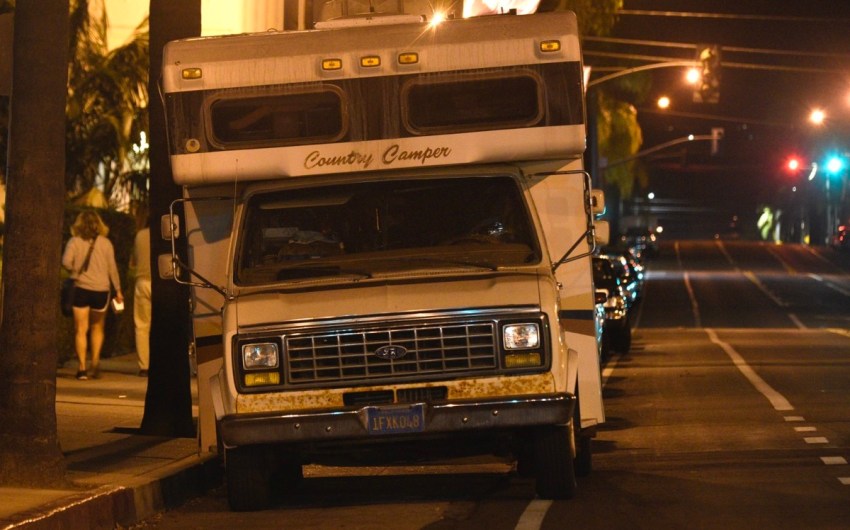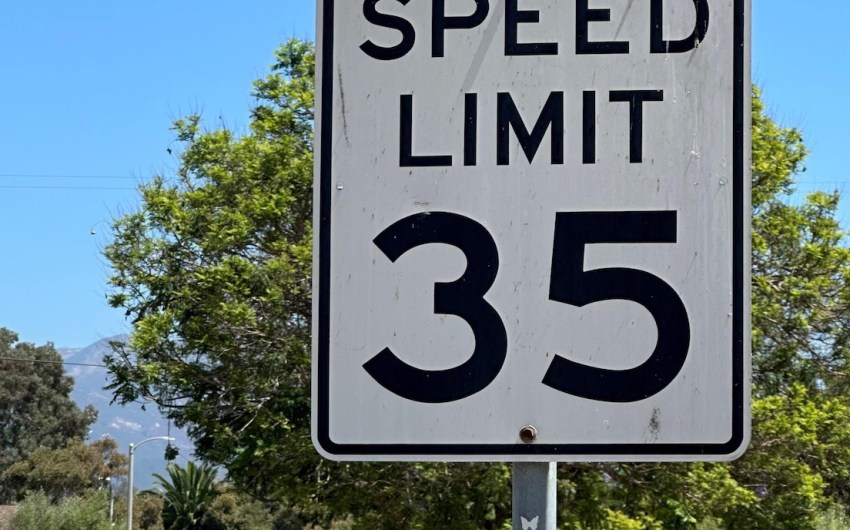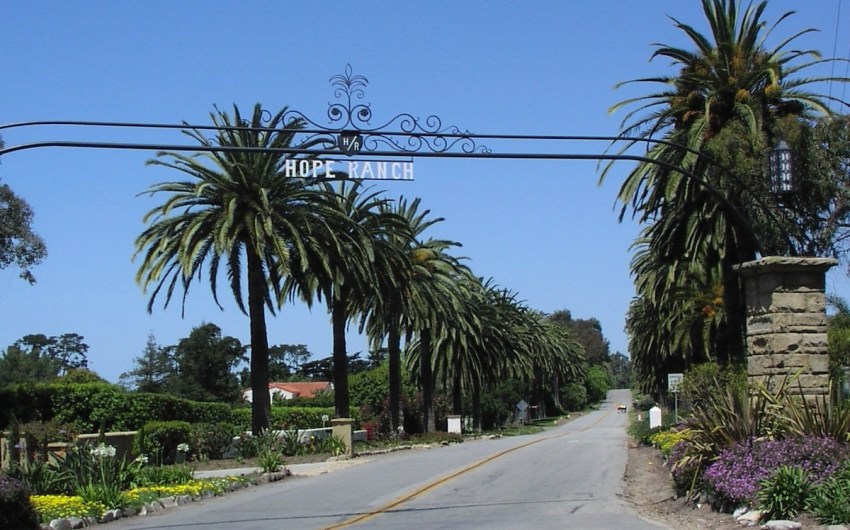‘This Program Is a Lifeline’: Santa Barbara’s Safe Parking Program Celebrates 20 Years
State of Homelessness in County and Beyond Discussed at June 20 Event

“Do you give change to homeless people on the streets?”
To signal “no,” the vast majority of the nearly 160 individuals seated in the Santa Barbara Woman’s Club in Mission Canyon knocked on their tables or tapped their glasses. “Why? Why is being homeless so stigmatized?”
Dr. Michele Wakin, sociologist and former UCSB graduate, asked the tough questions to attendees of the Safe Parking Program 20th Anniversary Celebration last Thursday, June 20, inspiring discussion on the state of homelessness in Santa Barbara County and beyond. Serving as a sort of myth-buster for the afternoon, Wakin put widely believed stereotypes about homeless people on the table — just to rip off the tablecloth, revealing the realities behind them.
She spoke about Santa Barbara’s very own hobo jungles from the early 1900s, which challenged the belief that members of the homeless community are devoid of law and order. In fact, the “mayor of Jungleville” would meet with the city’s elected officials to talk policy and PR on a yearly basis. Simply put, they held themselves and others to a relatively high standard, all things considered.

While we don’t see many shantytowns like this anymore due to “homelessness becoming a public space issue,” Wakin said, the sense of accountability that they demonstrated has not been forgotten.
The California-heavy notion is that these individuals flock to progressive, wealthier cities with more forgiving social services and policies toward their population.
To this, Wakin brings up a surprising counterpoint: Detroit, Michigan. Detroit is dealing with a population where more than one in three people (more than 33 percent) fall below the federal poverty line — more than double Santa Barbara County’s 14.1 percent and rising far above the national average of 11.5 percent.
However, as of last summer, Detroit’s homeless count on any given night was fewer than 2,000 people on the streets and in shelters, according to the city’s Housing and Revitalization Department. While these counts are certain to be underreported, for an impoverished city of more than 140 million, this number is astonishingly low.
For reference, Los Angeles — with its amassed wealth and progressive politics — boasts a homeless per capita rate about five times higher than Detroit’s.
“It’s all about housing,” she said. “Detroit has affordable and subsidized housing, and they have a lot of it, which is why they’re able to keep their homeless numbers so low despite the huge amount of poverty you see.”
To Wakin, the issues of homelessness and housing are flip sides of the same coin. Combine this with the optimism of New Beginnings’ Safe Parking Program toward eliminating some portion of the complex matter, and it doesn’t seem all that daunting.

As the program’s first coordinator in 2004, Wakin helped facilitate its effort to provide safe, overnight parking spaces to individuals and families living out of their cars. The 20th anniversary event awarded Congressmember Salud Carbajal and former county supervisor Susan Rose, both in attendance, for their pivotal roles in getting this program off the ground.
“Susan Rose simply would not take no for an answer,” said Judi Weisbart, emcee for the event. Rose served on the Board of Supervisors for eight years, where she masterminded the idea and has since been a tenacious force for issues surrounding homelessness, women’s rights, and affordable housing.
“This program is a lifeline,” stressed a teary-eyed Carbajal, who had to pause and gather himself before continuing. “It provides so much to those that don’t have the luxury of shelter over their heads tonight.”
The tears came after emcee Weisbart commended Carbajal’s children, their poise, and the congressmember’s role in raising them. “My kids are making me cry,” Carbajal said through glassy eyes. Both children raised their paddles to donate to the Safe Parking Program during the fundraising portion of the luncheon.
The program serves more than 600 individuals annually. By “meeting people where they’re at,” as Carbajal put it, Safe Parking allows people to access necessary services without enabling or stigmatizing vehicular homelessness. Program participants have access to showers, bathrooms, and counseling services alongside rehousing assistance.

When the program hit a wall of NIMBY-ism (not-in-my-backyard-ism) at its proposal in 2004, the County of Santa Barbara decided to take matters into its own hands — or its own lots — approving the first Safe Parking lot behind the County Administration Building on Anacapa Street, where it still operates today.
Since then, cities and counties nationwide have mirrored Santa Barbara’s efforts, adopting similar programs with the help of New Beginnings’ Safe Parking Program Manual. “We’ve got dozens of copy-cats, in a good way!” exclaimed Carbajal.
Both former Supervisor Rose and New Beginnings Director Kristine Schwarz emphasized that ending homelessness in Santa Barbara County is an attainable goal — this being a big step in the right direction.
A bigger step could be made if state-owned lots were thrown into the mix, many of which are completely vacant at night.
“It will be an extremely slow and concentrated effort,” Wakin said regarding the process of pressuring state officials to expand this program. “But if you actually take time to drive around the lots and talk with people there, it’s not difficult to see the impact. It helps a lot with getting people on board”
Schwarz says after lobbing multiple tennis balls, they’ve been met with lots of resistance from state officials — the reasons not made entirely clear to Schwarz and her staff.
Attempts of roping in more jurisdictions to expand this critical program have been a continuous source of frustration for the individuals working tirelessly to get our neighbors off the streets, but sources from Senator Monique Limón and Assemblymember Gregg Hart’s offices say that this is an ongoing conversation.
This article was underwritten in part by the Mickey Flacks Journalism Fund for Social Justice, a proud, innovative supporter of local news. To make a contribution go to sbcan.org/journalism_fund.
Premier Events
Fri, Dec 27
6:00 PM
Solvang
New Year Disco Ball Paint & Sip
Fri, Dec 27
9:00 PM
Santa Barbara
Film Screening: “Indiana Jones and The Last Crusade”
Sat, Dec 28
7:00 PM
Lompoc
Rosie Flores & Grey DeLisle + Special Guests LIVE
Sat, Dec 28
7:00 PM
Carpinteria
Family Comedy Night at The Alcazar
Sat, Dec 28
7:00 PM
Santa Barbara
The Temptations at Casa De La Raza
Sat, Dec 28
9:00 PM
Santa Barbara
Film Screening: “Indiana Jones and The Last Crusade”
Tue, Dec 31
5:00 PM
Santa Barbara
New Year’s Eve Dinner
Tue, Dec 31
6:00 PM
Santa Barbara
Gin + Jazz New Year’s Eve Celebration at El Encanto
Fri, Jan 03
6:00 PM
Santa Barbara
Flow’s 1st Friday Tea Social- Stuff Swap
Sun, Jan 05
7:00 PM
Santa Barbara
Jazz at the Lobero: Robert Glasper
Fri, Dec 27 6:00 PM
Solvang
New Year Disco Ball Paint & Sip
Fri, Dec 27 9:00 PM
Santa Barbara
Film Screening: “Indiana Jones and The Last Crusade”
Sat, Dec 28 7:00 PM
Lompoc
Rosie Flores & Grey DeLisle + Special Guests LIVE
Sat, Dec 28 7:00 PM
Carpinteria
Family Comedy Night at The Alcazar
Sat, Dec 28 7:00 PM
Santa Barbara
The Temptations at Casa De La Raza
Sat, Dec 28 9:00 PM
Santa Barbara
Film Screening: “Indiana Jones and The Last Crusade”
Tue, Dec 31 5:00 PM
Santa Barbara
New Year’s Eve Dinner
Tue, Dec 31 6:00 PM
Santa Barbara
Gin + Jazz New Year’s Eve Celebration at El Encanto
Fri, Jan 03 6:00 PM
Santa Barbara
Flow’s 1st Friday Tea Social- Stuff Swap
Sun, Jan 05 7:00 PM
Santa Barbara























You must be logged in to post a comment.